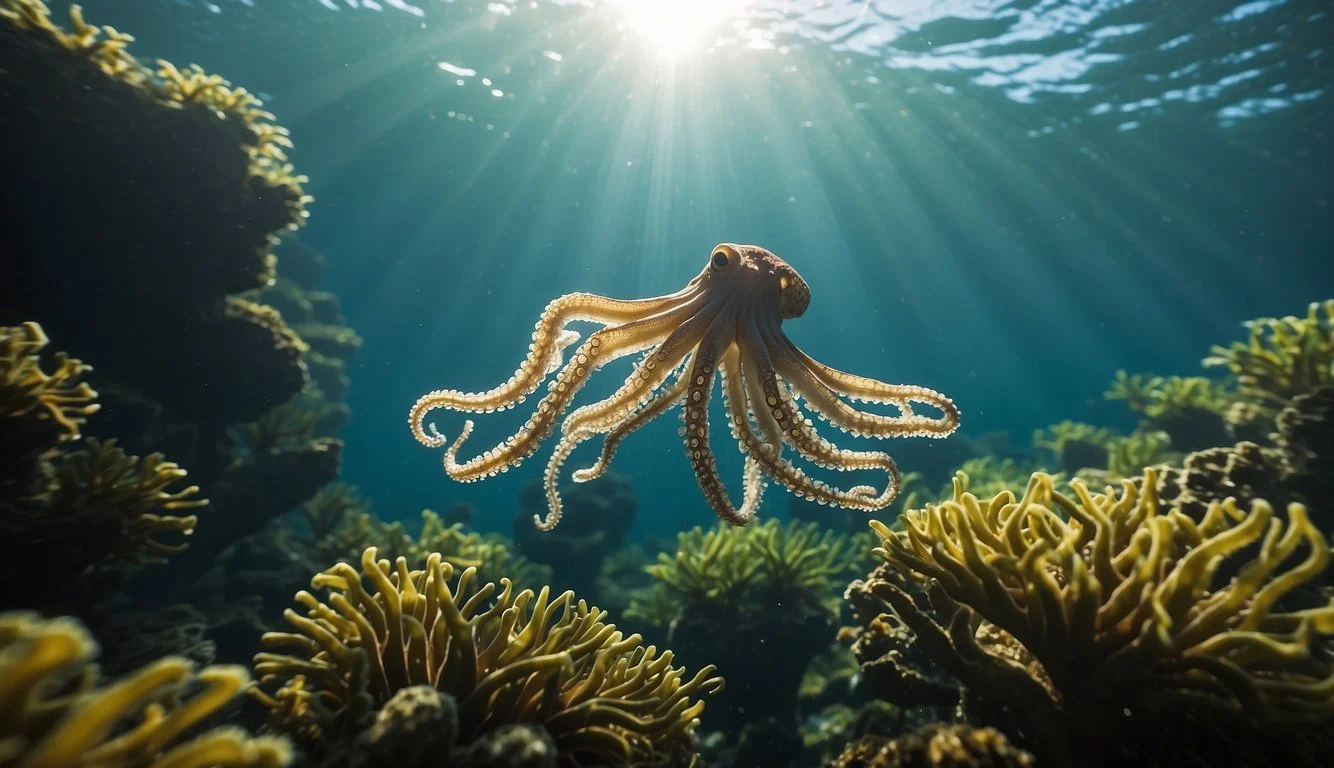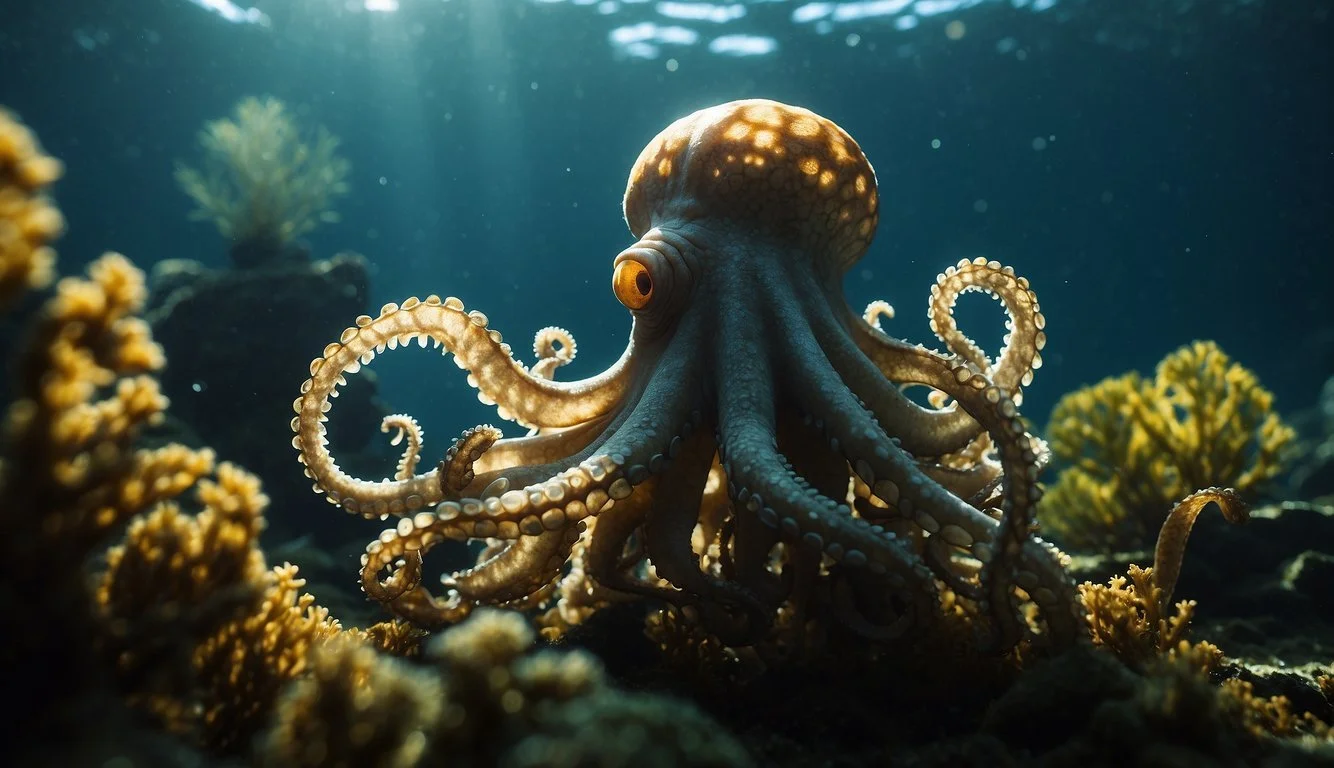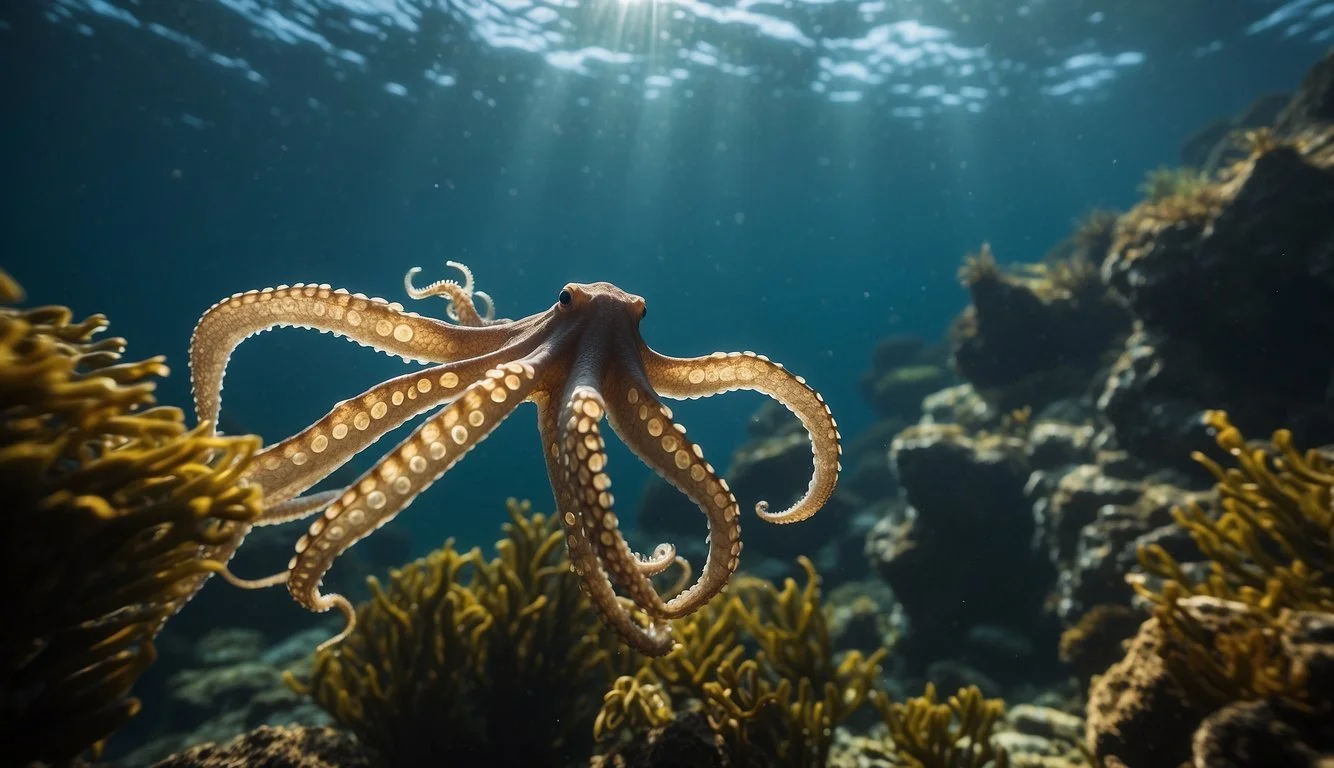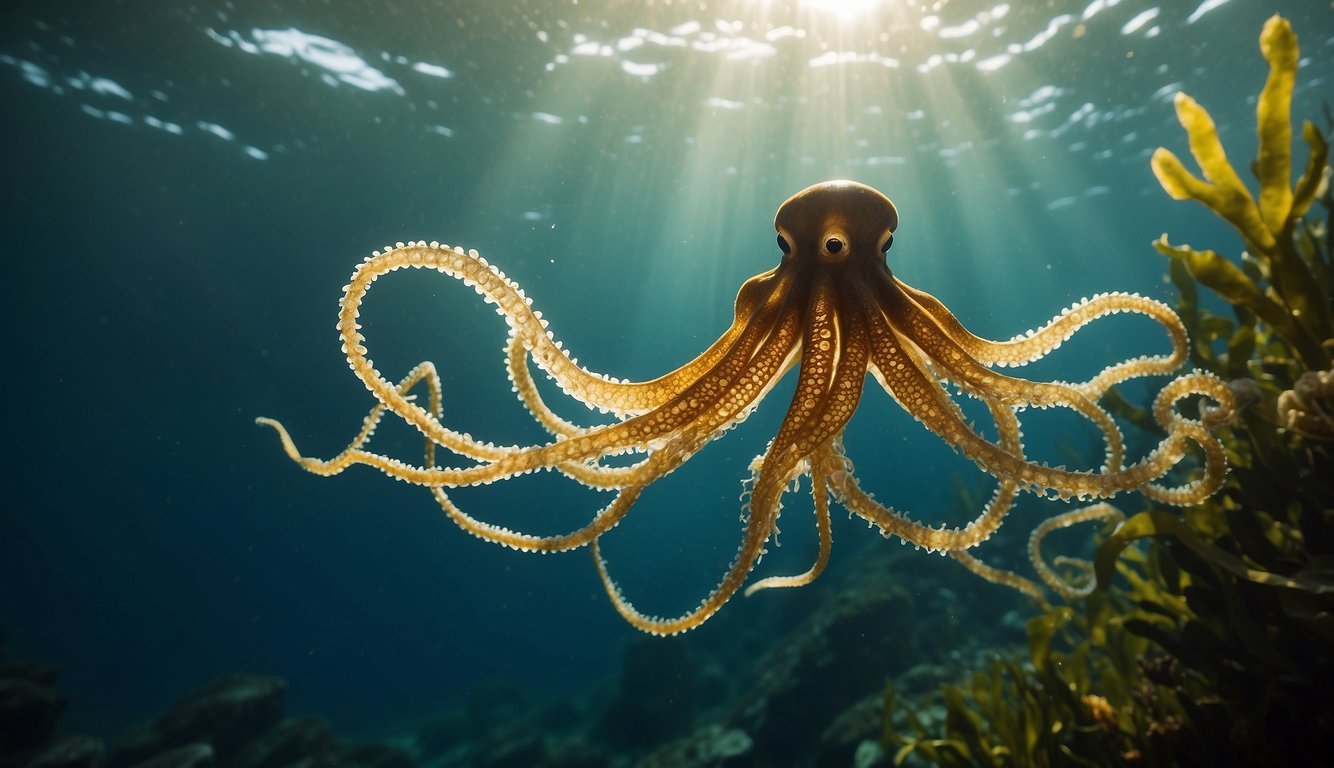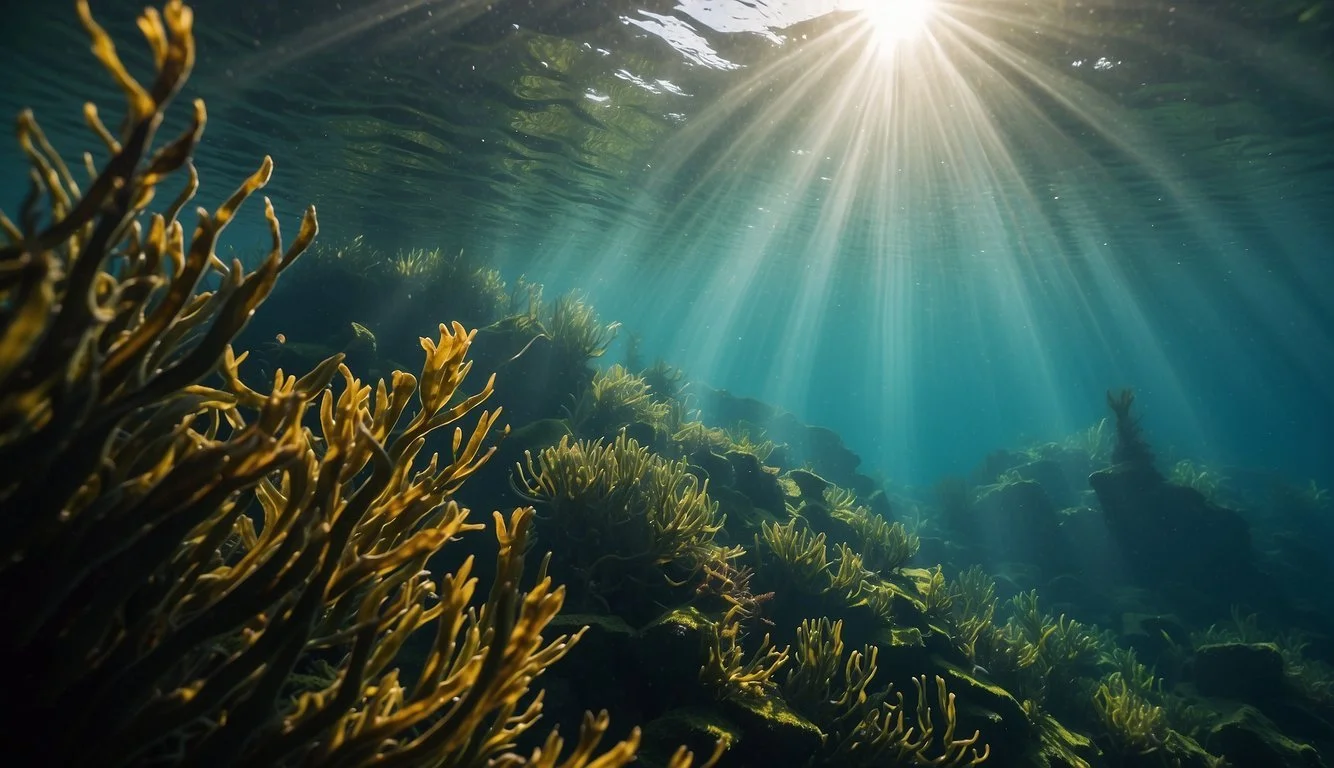Documentary Review: My Octopus Teacher (2020)
A Deep Dive Into Underwater Connection
Craig Foster's "My Octopus Teacher," released in September 2020, documents a unique relationship between a South African filmmaker and a wild octopus. The film, which follows Foster's journey of self-discovery through his encounters under the sea, has captivated audiences with its breathtaking underwater cinematography and heartfelt narrative. In this documentary, viewers experience the profound bond formed between man and nature, offering a refreshing escape from the hustle of everyday life.
This Netflix hit elegantly blends the beauty of marine life with the poignant story of a man seeking solace. Foster's emotional connection with the octopus provides a compelling look at interspecies relationships, highlighting themes of resilience and renewal. By documenting his year-long interaction, the film captures moments of learning and surprise, making it more than just a nature documentary.
With an 85-minute runtime, "My Octopus Teacher" combines stunning visuals with an equally gripping storyline, illustrating how intimate connections with nature can lead to personal transformation. The documentary has not only won accolades but also sparked conversations about marine conservation and the delicate balance of our ecosystems.
Overview of 'My Octopus Teacher'
'My Octopus Teacher' is a captivating documentary that examines the profound connection between a filmmaker and a wild octopus. This film is noteworthy for its unique narrative and stunning underwater cinematography.
Background and Production
Released in September 2020, 'My Octopus Teacher' emerged as a standout on Netflix. The film was directed by Pippa Ehrlich and James Reed, with Craig Foster as the primary subject. The project was produced in collaboration with the Sea Change Project, a marine conservation organization.
The documentary's production spanned several years, showcasing meticulous effort in capturing the intricate life of the octopus. Foster, a renowned South African filmmaker, spent extensive time free-diving in the kelp forests of False Bay, South Africa. Here, Foster developed a remarkable bond with a common octopus, providing a unique lens on marine life.
Plot Synopsis
Craig Foster, experiencing a personal crisis, finds solace and purpose in the underwater world. His journey leads him to a special friendship with a female octopus. Over a year, he documents their interactions, unveiling the octopus's behaviors and survival strategies.
Foster's narrative explores themes of empathy and interconnectedness. The octopus displays intelligence, curiosity, and adaptability, challenging viewers to rethink their understanding of marine life. Key scenes include the octopus camouflaging from predators and a surprising hunting strategy involving tools, showcasing her sophisticated behavior.
The Filmmakers
The film was directed by Pippa Ehrlich and James Reed, both seasoned documentary filmmakers with a focus on nature and wildlife. Craig Foster's involvement extends beyond being the film's subject; he is also credited as a producer. His extensive background in natural history filmmaking and deep knowledge of the kelp forest environment enrich the documentary's authenticity.
Ehrlich and Reed's direction emphasizes intimacy and patience, allowing the story to unfold naturally. Their combined expertise creates an immersive experience that captures the subtleties of the underwater world. Together with Foster, they succeeded in crafting a narrative that is both educational and profoundly moving.
These filmmakers' collaborative effort resulted in a documentary that not only highlights marine biodiversity but also underscores the potential for human connection with the natural world. With visually stunning scenes and a deeply personal story, 'My Octopus Teacher' achieves a unique blend of art and science.
Themes and Analysis
My Octopus Teacher explores several profound themes, capturing the essence of human connection with nature, the intellect of cephalopods, and the complex interplay between isolation and companionship.
Connection to Nature
The documentary centers on Craig Foster, who finds solace and purpose in his daily dives into the kelp forest. His bond with an octopus exemplifies the deep, emotional connection humans can form with the natural world. This relationship highlights the healing power of nature, portraying it as a source of inspiration and mental well-being. Foster's experience underscores the importance of respecting and preserving marine life; it provides a poignant reminder of the fragile beauty of underwater ecosystems.
Education and Intelligence of Cephalopods
Cephalopods, particularly octopuses, are depicted as highly intelligent creatures with complex behaviors. The film dispels myths of cephalopods being simple, instinct-driven animals. Instead, it showcases their problem-solving skills, adaptability, and emotional responses. Through intimate footage, viewers learn how the octopus uses tools, camouflages for survival, and interacts with its environment. This portrayal elevates the octopus from an enigmatic sea creature to a fascinating, sentient being worthy of admiration and protection.
Themes of Isolation and Companionship
The narrative delves into Foster's personal journey, marked by feelings of isolation and a search for meaning. His solo dives initially symbolize his detachment from society. However, his friendship with the octopus emerges as a powerful theme of companionship. This bond is both transformative and therapeutic, illustrating how meaningful connections can alleviate loneliness. The juxtaposition of isolation and companionship is artfully woven into the documentary’s visual storytelling, bridging the emotional gap between human experience and the animal world.
Cinematography and Visuals
The documentary "My Octopus Teacher" impresses with its breathtaking visuals and cinematic techniques. It skillfully immerses viewers in the underwater world teeming with life and color.
Underwater Film Techniques
The filmmakers employed advanced underwater cameras to capture the stunning beauty of the South African kelp forest. They used macrophotography to reveal intricate details of marine life. Slow-motion shots emphasize the fluid grace of the octopus's movements, creating a hypnotic effect.
Natural lighting played a crucial role in highlighting the vibrant hues of the ocean's flora and fauna. The steadiness and clarity of the shots were aided by stabilizing equipment, essential for seamless filming in an aquatic environment.
Visual Storytelling
The visuals serve not just to dazzle but to tell a compelling narrative. Craig Foster's interactions with the octopus are framed to convey their growing bond. Each shot reflects their mutual curiosity and trust, making the viewer part of this evolving relationship.
The use of close-up shots humanizes the octopus, emphasizing its expressions and behaviors. Contrasting wide-angle shots capture the vastness of the underwater world, adding context and scale to their connection. This careful composition and editing build a visual language that speaks of wonder, intimacy, and discovery.
Critical Reception
My Octopus Teacher has garnered significant acclaim from both critics and audiences since its release in 2020. The documentary, which follows Craig Foster's unique bond with an octopus in the cold seas of South Africa, has been praised for its emotional depth and stunning cinematography.
Many reviewers highlight the film's ability to weave a personal narrative with broader environmental themes, enhancing its universal appeal. The intimacy of Foster's relationship with the octopus provides a fresh perspective on marine life, making the film a standout in the nature documentary genre.
Awards and Accolades:
Academy Award for Best Documentary Feature (2021)
BAFTA Award for Best Documentary (2021)
Critics from various platforms have given My Octopus Teacher high ratings. Variety described it as a "gorgeous hit nature doc." The film's visual and emotional resonance has cemented its status as a must-watch.
Ratings:
IMDb: 8.1/10
Rotten Tomatoes: 95% (Critics)
Audience feedback has also been overwhelmingly positive. Many viewers express that the film's portrayal of an unconventional friendship between man and octopus is both touching and enlightening.
In summary, My Octopus Teacher has achieved critical success, captured the hearts of viewers, and earned prestigious awards, demonstrating its significant impact in the world of documentary filmmaking.
Impact and Legacy
My Octopus Teacher has had a profound influence on documentary filmmaking, conservation efforts, and educational outreach, reaching a wide audience with its message.
Influence on Documentary Filmmaking
My Octopus Teacher has set a new benchmark in the documentary genre. Its intimate narrative and stunning underwater cinematography have been widely acclaimed, illustrating the potential for documentaries to be both informative and deeply personal. This film has inspired filmmakers to explore more personal and emotional storytelling techniques.
The film's success, evident from winning the Academy Award for Best Documentary Feature in 2021, points to a shift in audience expectations. By blending human emotion with environmental themes, it has paved the way for more innovative approaches in the genre.
Conservation Efforts
The film has significantly bolstered awareness about marine conservation. Viewers have been moved by the portrayal of the octopus and its delicate ecosystem, leading to increased interest in oceanic preservation. Environmental conservation emerged as a key takeaway, encouraging audiences to consider the impact of human activities on marine life.
Organizations dedicated to ocean health have leveraged the film’s popularity to promote advocacy and action. This increased focus on conservation underscores the documentary’s role in sparking a greater dialogue about protecting the ocean and its inhabitants.
Educational Outreach
Educational institutions have adopted My Octopus Teacher as a valuable resource. The documentary provides insightful content for various subjects, including biology, environmental science, and psychology. Its real-life narrative serves as an engaging tool to discuss topics such as animal intelligence and interspecies relationships.
Furthermore, educational programs and online platforms have utilized the documentary to ignite curiosity and foster a deeper connection to nature among students. By integrating this film into their curricula, educators have successfully harnessed its power to inspire and inform the next generation.
Conclusion
"My Octopus Teacher" stands out as a visually stunning and emotionally impactful documentary. The film, directed by Craig Foster and Pippa Ehrlich, offers more than just a glimpse into the underwater world. Its strength lies in the unique bond between the filmmaker and the octopus.
The documentary's cinematography captures the elegance and mystery of marine life. Foster's narrative, intertwined with his personal journey, adds depth and authenticity.
With an 85-minute runtime, the film maintains a balance between visual splendor and heartfelt storytelling. The critical acclaim and numerous awards underline its significance in the realm of nature documentaries.
"My Octopus Teacher" is more than a film; it is a testament to the power of connection, nature, and resilience. The emotional resonance and artistic achievement make it a must-watch.

